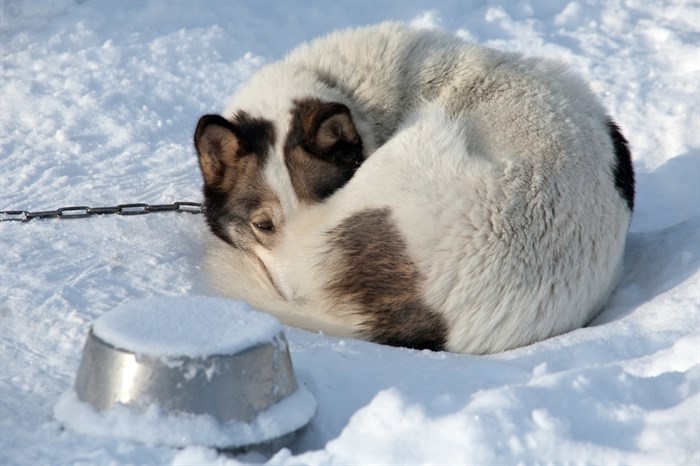
Image Credit: Shutterstock
December 31, 2021 - 3:30 PM
Unsure how to keep your four-legged furry friend safe and warm during frigid weather? The B.C. SPCA has tips for pet owners to help them get through the winter.
When taking animals out on a walk during the winter, pet owners are reminded to watch out for salt or sand on sidewalks, as it can get stuck between the animals’ paw pads and toes, and cause irritation.
If the salt or sand solution does get stuck in between paw pads, it can cause irritation in the mouth, paws, skin and an upset stomach in ingested.
To ensure this doesn’t happen, pet owners can dry the animals' paw pads after being outside, and clean between their toes and pads.
For your own sidewalk, choose a pet-friendly, non-corrosive de-icing compound readily available through retail outlets, the SPCA said.
When taking your dog out, walk slowly and carefully in icy conditions to minimize the chance of them slipping and injuring themselves.
If it’s too cold outside, consider doing activities inside, like playing fetch, chase, hide-and-seek or teach a new trick to burn off some of your dog’s energy.
READ MORE: Hummingbird helpers in southern B.C. having tough week thanks to frigid weather
If you do take your pooch out on a walk in the winter, the SPCA encourages owners to make sure they are properly protected from frostbite.
Dogs may have fur coats, but some aren’t very thick. They get cold and can suffer from exposure just like humans, the SPCA said.
Pet owners should look out for common signs of frostbite such as pale grey or blueish skin, pain and swelling in the area, brittle cold skin, blisters or skin ulcers, and blackened or dead skin.
In addition to frostbite, pet owners should be cognizant of common hypothermia symptoms including shivering, pale or grey gums, lethargy, stumbling and lack of coordination.
If temperatures are extremely cold, consider getting your pet a nice winter jacket or covering, and winter boots to protect their paws.
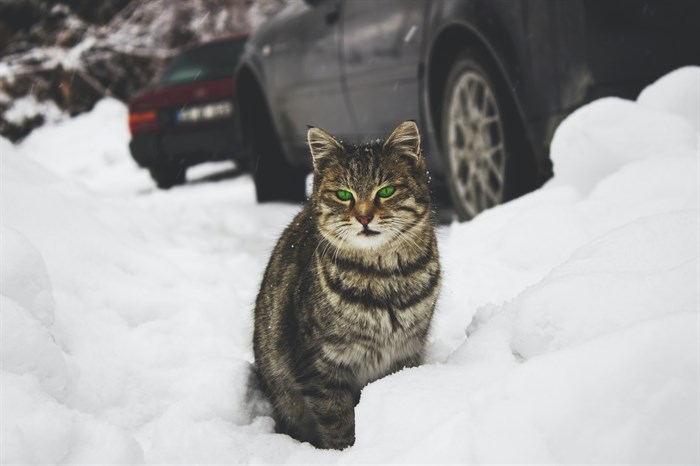
FILE PHOTO
Image Credit: PEXELS
“Puppies and older dogs may find it more difficult to control their body temperature. Dogs with heart disease or diabetes are also at a greater risk of getting frostbite because these conditions reduce blood flow to their extremities,” the website said. “The cold can also aggravate existing health conditions such as arthritis in older dogs, who should be monitored closely or kept indoors.”
If pet owners noticed their animal’s paws, ears or tail is frostbitten, it’s an early warning sign they are at risk of developing hypothermia, the SPCA said.
If an animal is showing the signs of frostbite or hypothermia, owners can warm them up by placing the frostbitten areas in a bowl of warm water.
Before putting the affected area in water, owners should test the water on their hands to ensure it’s warm to the touch but not too hot.
Do not use dry heat, such as a hairdryer or heating pad on the dog. Pat the dog dry and make sure not to rub or massage the frostbitten area, the SPCA said.
When the animal starts to warm up the frostbitten areas can become red and will be painful.
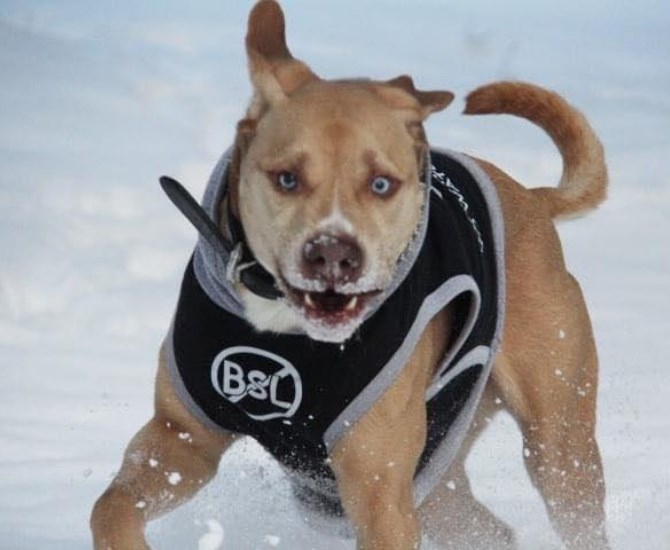
FILE PHOTO
Image Credit: Olivia Greenland
A local vet could be able to give the animal pain medication to keep them comfortable while the frostbite heals. If it’s severe, it could require antibiotics to prevent a bacterial skin injection.
Do not try to warm up the dog if you are not close to home unless you can keep the area warm. The area can refreeze and cause more damage, the SPCA said. IT strongly urges guardians to keep all animals indoors during cold weather.
If domestic or farm animals are outside, the SPCA reminds owners to ensure the animals have access to an insulated shelter that provides protection from wind, cold and dampness.
Before getting into a vehicle, drivers should check that no cats or wild animals have made the vehicle their shelter from the cold.
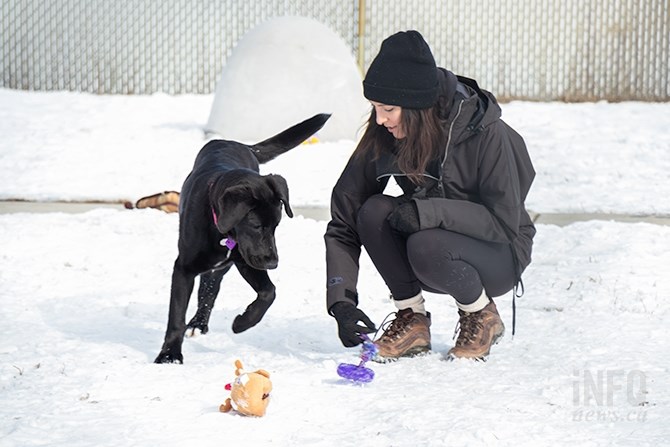
FILE PHOTO
(SHELBY THEVENOT / iNFOnews.ca)
When it’s cold outside, cats or wild animals will try to find warmer places to seek shelter, the SPCA said.
Cats and raccoons can easily find space in a vehicle bumper to keep warm, especially in a recently parked vehicle.
The think and thump tactic can give animals time to escape a parked vehicle without being harmed. Before driving away, tap or lightly thump the hood of the vehicle, and wait a few moments and listen for any noises of an animal escaping before starting the vehicle.
READ MORE: Spences Bridge woman lost everything in floods, needs to bring therapy horse home
President of the AlleyCats Alliance, Theresa Nolet said the most important thing pet owners can do during the extreme cold snaps is to bring their animals inside if possible.
“I hope people don’t have very many dogs living outside in this day and age, but if pets are living outside, make sure they have good safe shelter, where they can seek refuge from the weather,” Nolet said.
Shelters should be insulated with straw, not rags or cloths, as it can make the shelter even colder.
Along with proper shelter, pet-owners should ensure their animals’ have enough water, so they are not depending on eating snow, and double the amount of food they would normally have.
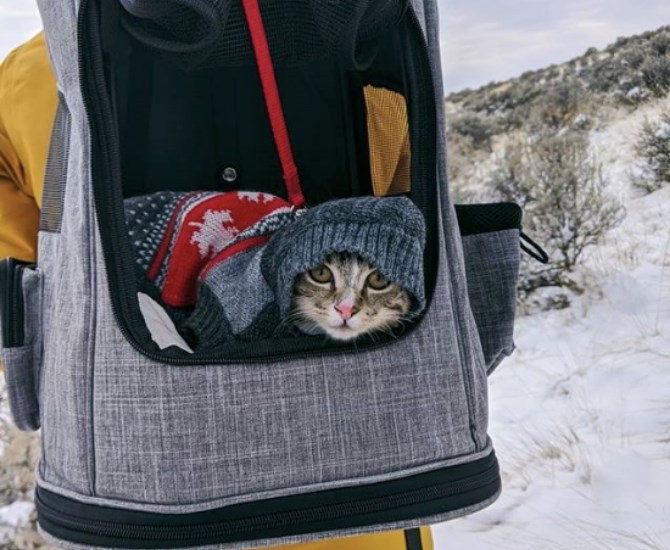
FILE PHOTO
Image Credit: SUBMITTED/Jasmine McDaniels
“Food in cold times is important. If you are feeding stray cats, double up on the food, give them as much food as you can afford to because that’s the source of their warmth, is having the calories available,” Nolet said. “Without the calories, they struggle to keep warm.”
Nolet suggests cat owners who let their cats outside to roam, be attentive as to how long their animal is outside, and in extreme cold periods, try to keep the cat inside until it warms up.
Although the cold weather will affect each dog breed differently, Nolet suggests pet owners be more aware of how their pet is feeling.
“Be aware and be in tune with what your dog is telling you,” Nolet said. “Be attentive. It’s paying more attention and being more thoughtful.”
To contact a reporter for this story, email Emily Rogers or call 250-718-0428 or email the editor. You can also submit photos, videos or news tips to the newsroom and be entered to win a monthly prize draw.
We welcome your comments and opinions on our stories but play nice. We won't censor or delete comments unless they contain off-topic statements or links, unnecessary vulgarity, false facts, spam or obviously fake profiles. If you have any concerns about what you see in comments, email the editor in the link above.
News from © iNFOnews, 2021